How Much Do Welders Make? Salary Statistics (2024 Update)
Last Updated on
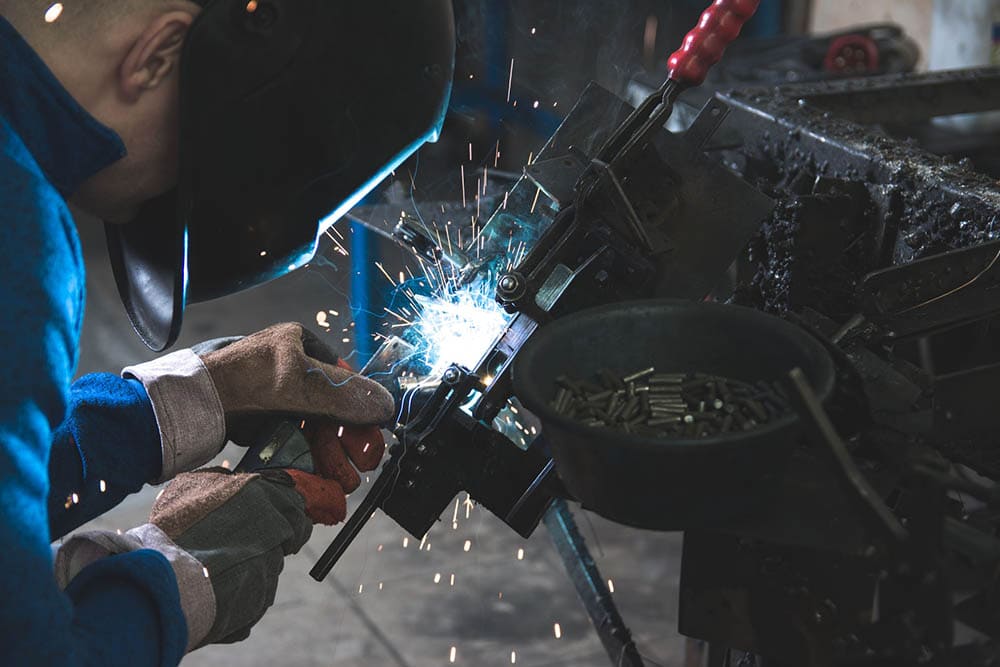
Did you know that there are more than 3 million welding professionals in the United States? Welding is both a skilled craft and a trade involved in various production techniques. They include heating metals to high temperatures and joining them with an oxygen-based arc that produces a molten pool.
Welders are one of the most sought-after workers in today’s job market. Although it isn’t always the highest-paid occupation, the pay rates increase with experience and skill level. With a skilled hand, a welder can make a decent salary under the right working conditions. If you’re wondering ‘how much do welders make?’ we dive into the 2021 salary statistics below. But, on average, welders make a salary of $41,710.
Keep reading to find out more.
How Much Do Welders Make?
As more firms expand their operations, the demand for welders will continue to increase. The amount welders make depends on several factors, as we will discuss later.
Welders are estimated to earn an average salary of $41,710. Due to a growing need for welders, welding is expected to see the fastest job increase compared to other occupations this year. The BLS (Bureau of Labor Statistics) estimates a 13% increase in demand for welders up to 2026.
The top-paying industries for welders are construction, manufacturing, and aerospace. The professional welding industry employs about 1.2 million people, and about 95 percent of these are employed in manufacturing.
A welder’s salary varies depending on education, skill level, and location. In addition, it varies from region to region or industry to industry.
On average, welders make approximately $18.75 per hour for a 40-hour workweek. This salary is higher once a welder becomes seasoned. Welders can also advance to project managers, foremen, and estimators. This means their salary will go up to the high six figures.
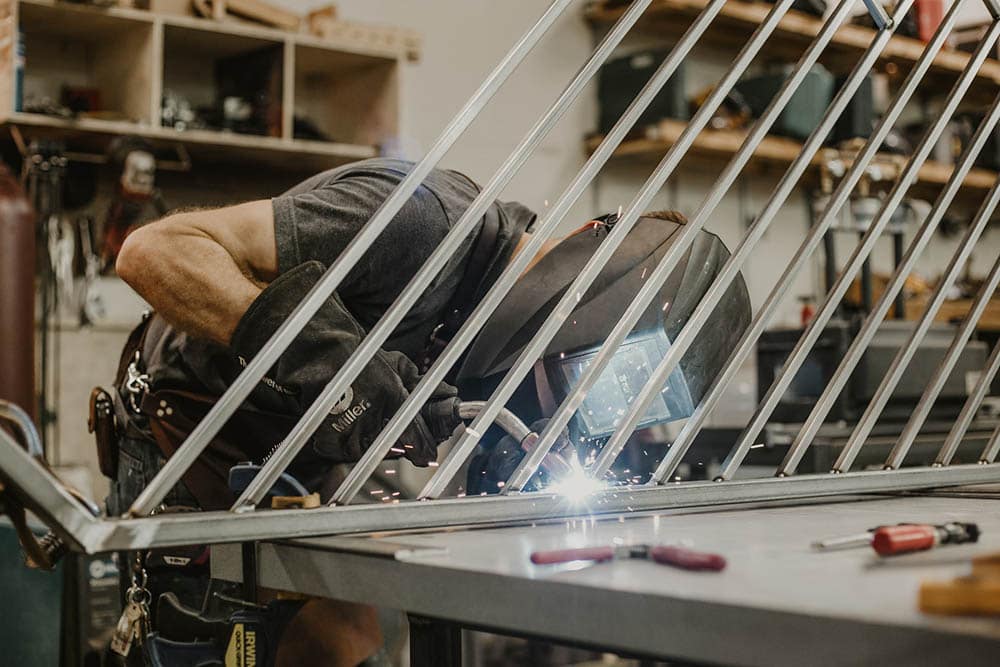
What Does a Welder’s Salary Depend on?
Although experienced welders earn more than novices, it’s best not to base your salary expectations on experience alone. Below we outline various factors that define how much a welder is paid.
The Type of Work
Welders often work on contract and short-term assignments. Some projects last a few months, while others can take several years. The length of time a project lasts, or the contract length can influence the salary of a welder.
- Check out the 11 highest-paying welding jobs here.
Location
Usually, welders working in large cities earn more than those in small towns and rural areas.
Employer
Welders working for large companies will earn more compared to those who work for smaller firms.
Education
Welders with formal education earn more than those without. Some employers require applicants to have four-year college degrees. However, some welders earn their certifications through welding schools and community colleges.
Certifications and Licenses
Welders with extra certifications or licenses may earn more compared to welders without accreditation.
Union Membership
If you are a union member, you will earn more than a welder who does not have union membership.
Industry
In some industries, welders get higher salaries compared to those working in other industries.
Other benefits
Welders with stock options or profit-sharing plans receive higher salaries compared to those who receive no benefits.
Years of experience
If you have been on the job for ten years or more, you will earn more than those who have only been on the job for two years.
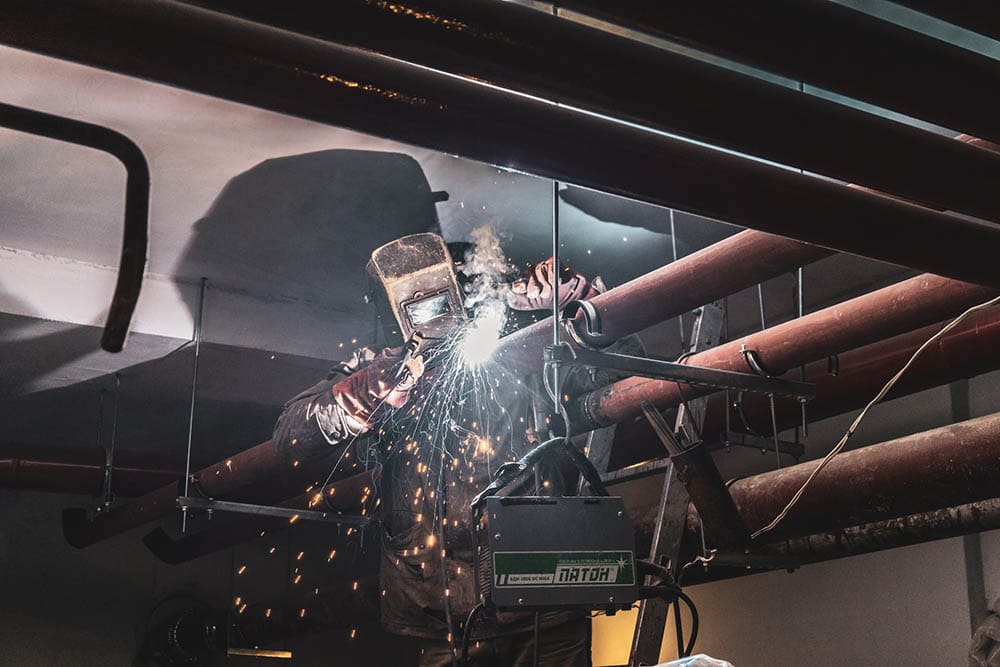
How Much Does a Welder Make an Hour?
Hourly wages for welders range from less than $20 to over $85. It depends on the specific job tasks. The average hourly wage is $37. The highest-paid welders earn over $130 an hour, with the lowest-paid welders earning less than $26 an hour as of 2021.
How Much Does a Welder Make a Week?
Many welding jobs have a standard 40-hour workweek. The average weekly wage for welders was $810.
How Much Does a Welder Make a Year?
The starting welder salary is $35,000 to $50,000 per year. However, many welders earn salaries that exceed $75,000 a year.
Average Welder Salary
Despite inflation, welder salary in 2021 is increasing. The average welder salary was $49,200 in 2020, and in 2021, it is expected to reach $51,900. This salary level is 1% higher than the average salary for all other careers.
What do Welders Do?
Welders are skilled craftsmen and women who repair, build, restore, and modify metallic structures. They work in various industries, such as construction, manufacturing, automotive repair, metal fabrication, maintenance, and repair.
If you have a strong aptitude for math and can operate heavy equipment, welding is an excellent career path to consider. Welders work in various settings, from factories to agricultural fields. Besides, some welders may specialize in working with specific metals, such as aluminum or stainless steel.
The Bureau of Labor Statistics (BLS) estimates that about 240,000 welders are working in construction, and about 400,000 welders are employed in manufacturing industries. Also, BLS reports that 40 percent of welders are self-employed.
Welders specialize in different types of welding including:
- Tungsten Inert Gas – TIG
- Gas Metal – (GMAW)
- Flux-Cored – (FCAW)
- Submerged Arc Welding – (SAW)
They use equipment such as torches, wire feeders, welding machines, and oxy-fuel torches.
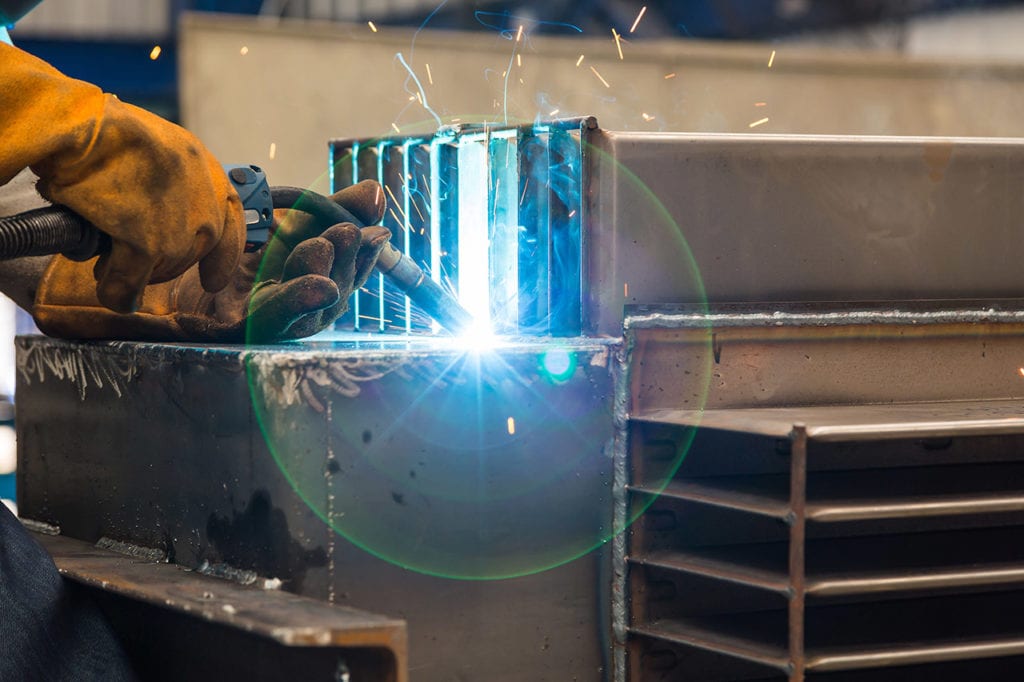
Average Welding Tasks Salaries According to Experience
There are many career opportunities in welding including construction, shipping, and offshore oil rigs — to mention a few. Usually, a welder’s tasks involve sealing metal joints by melting them.
The highest-paid welders perform complex welding tasks. They have advanced knowledge of metals, specialized skills, and more years of experience. Here is a breakdown of a welder’s salary based on experience.
Entry-Level Welder
Welding jobs are a mainstay of skilled trade professions. With a need for employees in the skilled trades, job opportunities in many welding fields have been on the rise in recent years. What’s more encouraging for many who have growing families to support is that the median salary for welding jobs has also been rising. Beginner welders earn over $28,000 annually.
Mid-Career Welder
What is the average salary for a mid-career welder? The Bureau of Labor Statistics states that the wages for these welders start from $37,520. If a welder reaches “mid-career” status, it means they have put in over ten years of experience.
Experienced Welder
If you are a seasoned welder, your salary rises to $60,000 to $75,000 range per year.
As your experience increases, so does your earning potential. For example, a welder with 20 to 30 years of experience can expect to make about $75,000 with benefits. If you have over 30 years of experience, you can earn up to $100,000.
What are the Highest-Paying Welding Tasks?
There are plenty of welding tasks great for beginners. You want to ensure that you choose the ones that will pay well.
Here are some of the highest-paying welding jobs and hourly earnings.
MIG Welder
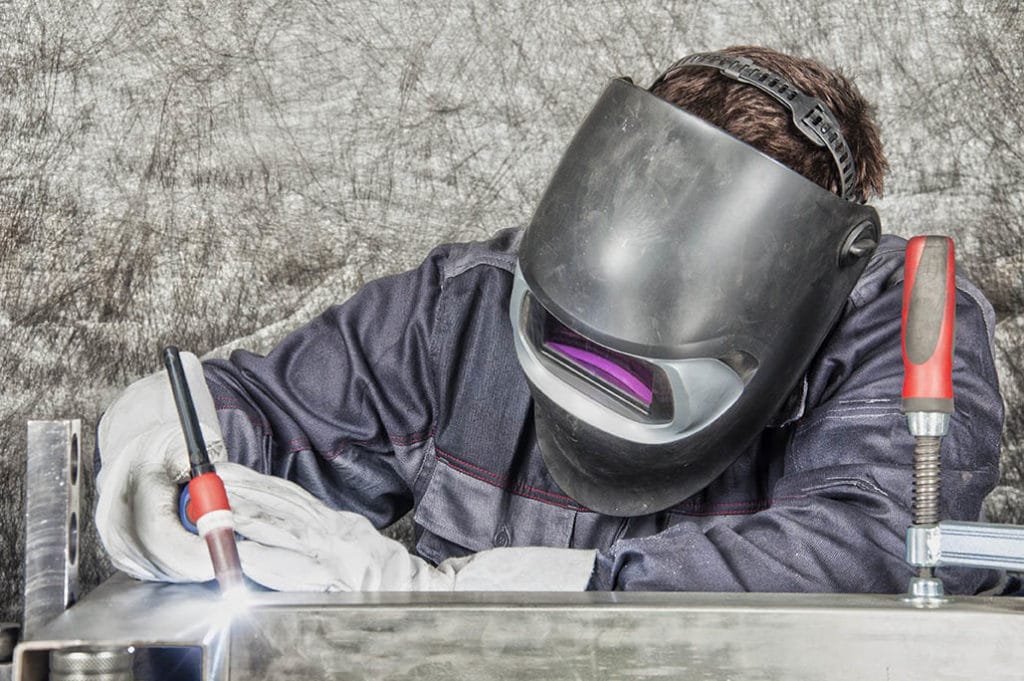
- Average Pay: $16.24
The types of welding jobs vary between different welding positions. MIG (Metal Inert Gas) welding is a method of gas metal arc welding where the flux is gas, not liquid. It uses an inert gas arc or plasma to create a weld.
MIG welding is a common type of welding in the manufacturing industry.
Rig Welder
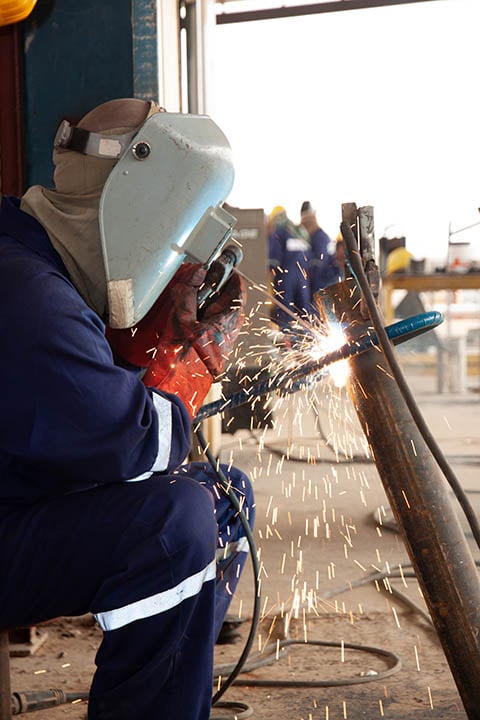
- Average Pay: $37
Rig welders perform tasks like routine maintenance on equipment such as cranes, semitrailers, or offshore rigs. Their responsibilities vary by employer and location. They have access to all the tools and equipment necessary to perform their duties.
A rig welder’s responsibilities focus on welding equipment repair. Nevertheless, it might also include repairing other kinds of equipment. For instance, a rig welder might repair equipment used in drilling operations, such as hydraulic hammers, drills, and pipe-handling equipment.
Fabricator
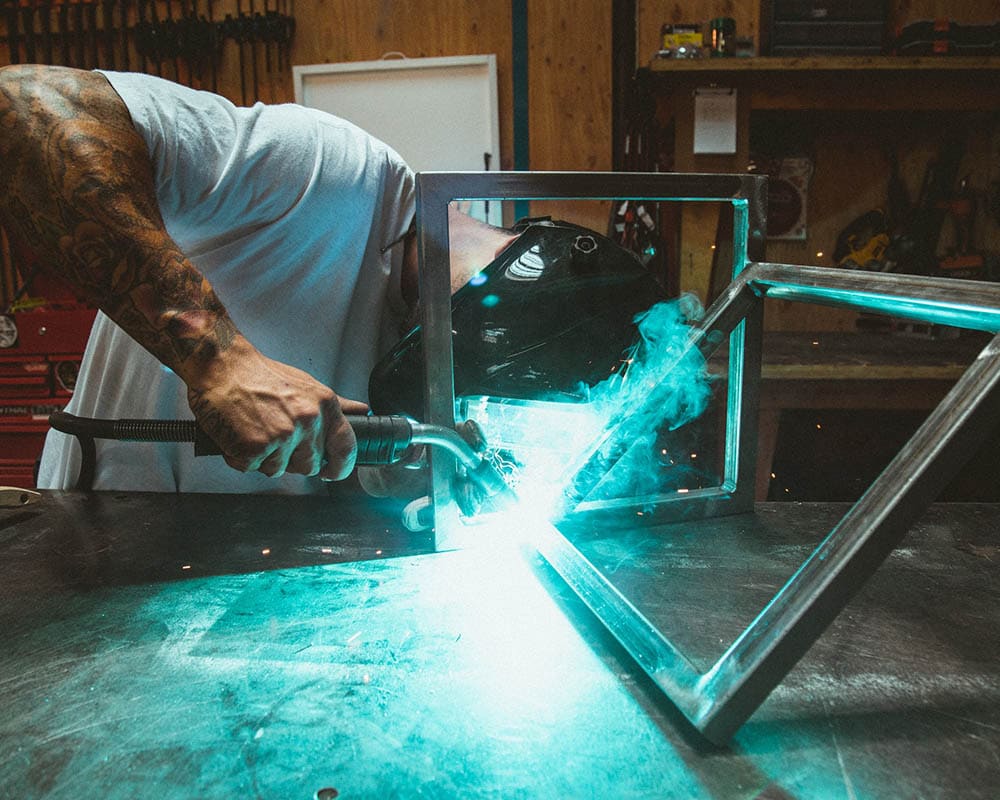
- Average Pay: $17.76
Fabricators design, build, and weld industrial equipment. They are often called welders but, their work is more complex than that. They design equipment, fabricate parts, and assemble them. They must also make the equipment safe, functional, and tailored to specific customers’ needs.
Fabricators work in many settings, such as carpentry shops, metal shops, construction sites, among others. The work is physically demanding as the fabricator can be exposed to heat, noise, dust, and fumes. They also must work with hazardous welding tools and equipment.
Underwater Welder
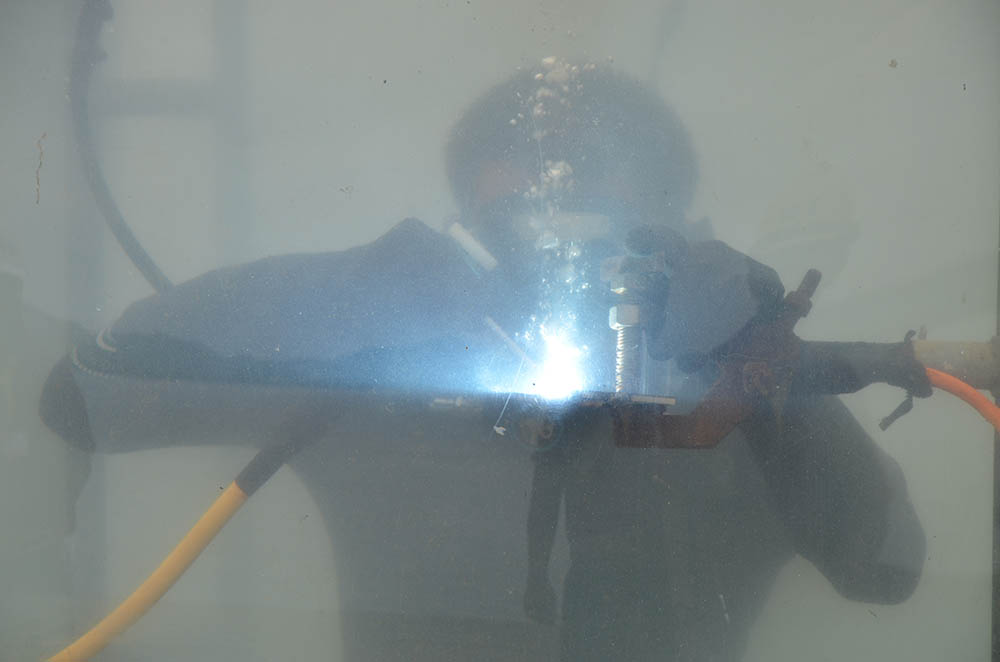
- Average Pay: $25.96
Underwater welders work in shipyards and on ships. They are responsible for repairing and replacing underwater sections of ships (such as the hull, propeller, rudder, and rudderpost) using special equipment.
Their work involves a lot of heavy lifting and working in cramped environments.
Fitter
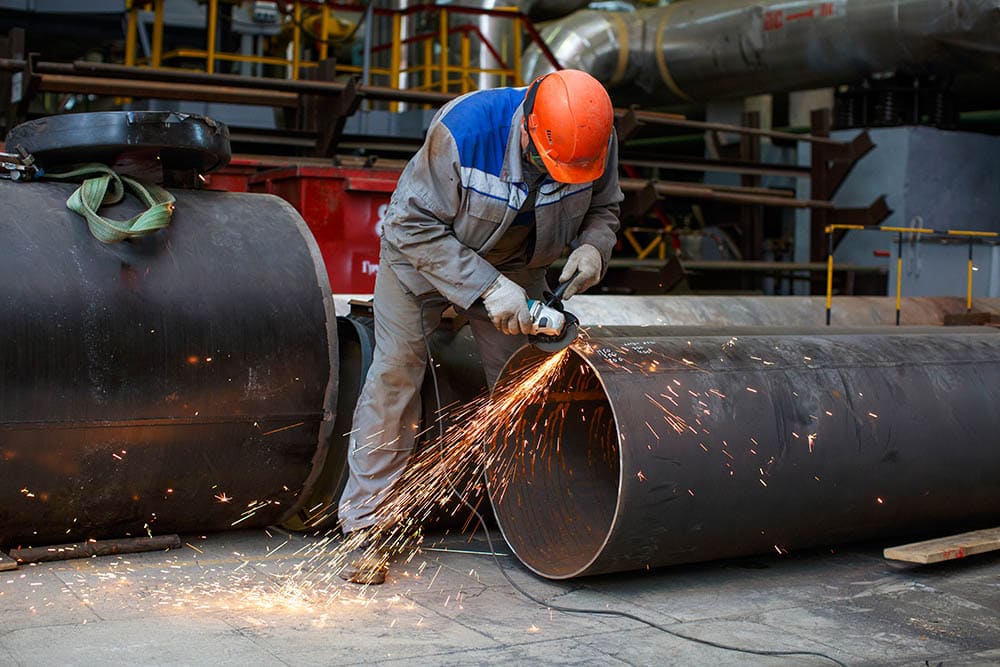
- Average Pay: $19.25
A fitter is a tradesman who specializes in fitting industrial machineries, such as boilers, generators, and turbines. Tasks include sourcing and installing pipework, valves and fittings, and connecting and commissioning machinery.
Fitting tasks can include welding, which is a major part of fitters’ jobs. Welding jobs can sometimes be risky. For example, fitting welding involves cutting, brazing, and grinding, which are dangerous when done in poorly ventilated areas.
Fitting and welding can also be mentally demanding. Fitters need to pay close attention to detail, as they often work with complex systems.
Pipe Welder
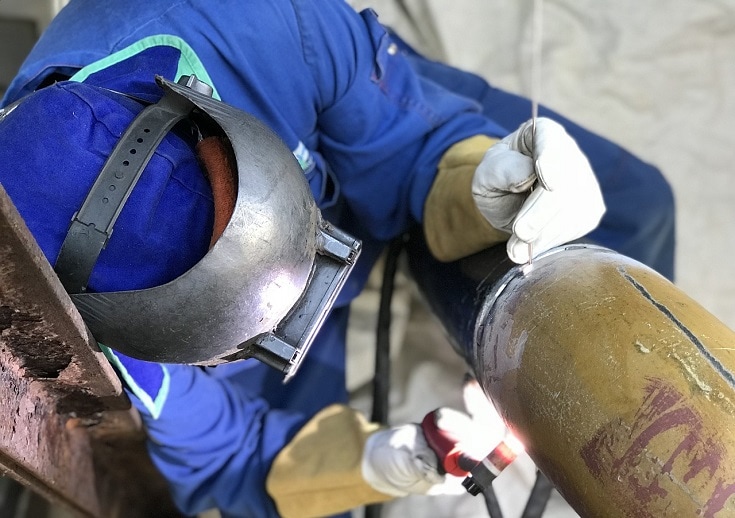
- Average Pay: $24.50
Pipe welding is a demanding job. It requires excellent hand-eye coordination, endurance, and a high level of skill. Welders need a high level of strength and stamina. Pipe welders work exclusively for the oil and gas industry. They construct pipelines.
Pipe welders must use both manual and robotic welding equipment but more important than all the physical requirements is the pipe welder’s knowledge.
They need to understand how pipes are made, what materials go into them, and how to make a pipe weld that will last.
Structural Welder

- Average Pay: $20.55
Structural welding is any welding performed on a structural component, such as a bridge, building, or vehicle. These welds may be permanent (structural welds) but they can also be temporary (reinforcement welds). Temporary structural welding is often performed in hard-to-access locations.
Structural welders use various welding approaches. TIG, GMAW, SAW are common forms of structural welding. Structural welders also use plasma arc, electron beam, arc, and resistance welding.
Usually, structural welding is performed on steel and other ferrous metals. Common metals include mild steel, galvanized steel, and stainless steel. Structural welders may also work with aluminum, titanium, and other less common metals.
Nuclear Welder
- Average Pay: $32
Nuclear welders, or arc welders, create safe, high-quality welds on machinery, and other atomic reactor components. They select a suitable welding technique to use on different metal types, including brass, carbon steel, aluminum, and stainless steel.
They set up and position the welding equipment and pipe being welded, then begin welding. Nuclear welders, or arc welders, may work in different environments, such as steel plants, shipyards, and fabrication shops.
Do Welders Make Good Money?
According to PayScale, welders earn a median salary of around $48,000 per year or $22.17 per hour while welders working in construction sites make about $54,000 per year or $24.97 per hour. This is quite a good deal if you were to make a comparison with other professions of the same level.
Final Thoughts
How much does a welder make? Well, in welding, you can make anywhere from $29,000 to $117,000 per year, with the median annual salary being $58,000. Experience and education level factor into how much a welder earns. Excellent skill and experience can lead to higher pay.
Welders usually need at least a high school diploma or GED, but special training and certifications, such as welding safety training, may be required for higher pay. Job growth for welders is expected to be strong, with about 14% more welders needed by 2022. This means that if you want to venture into welding, you will not go wrong because jobs are available, and the pay as seen is good.
